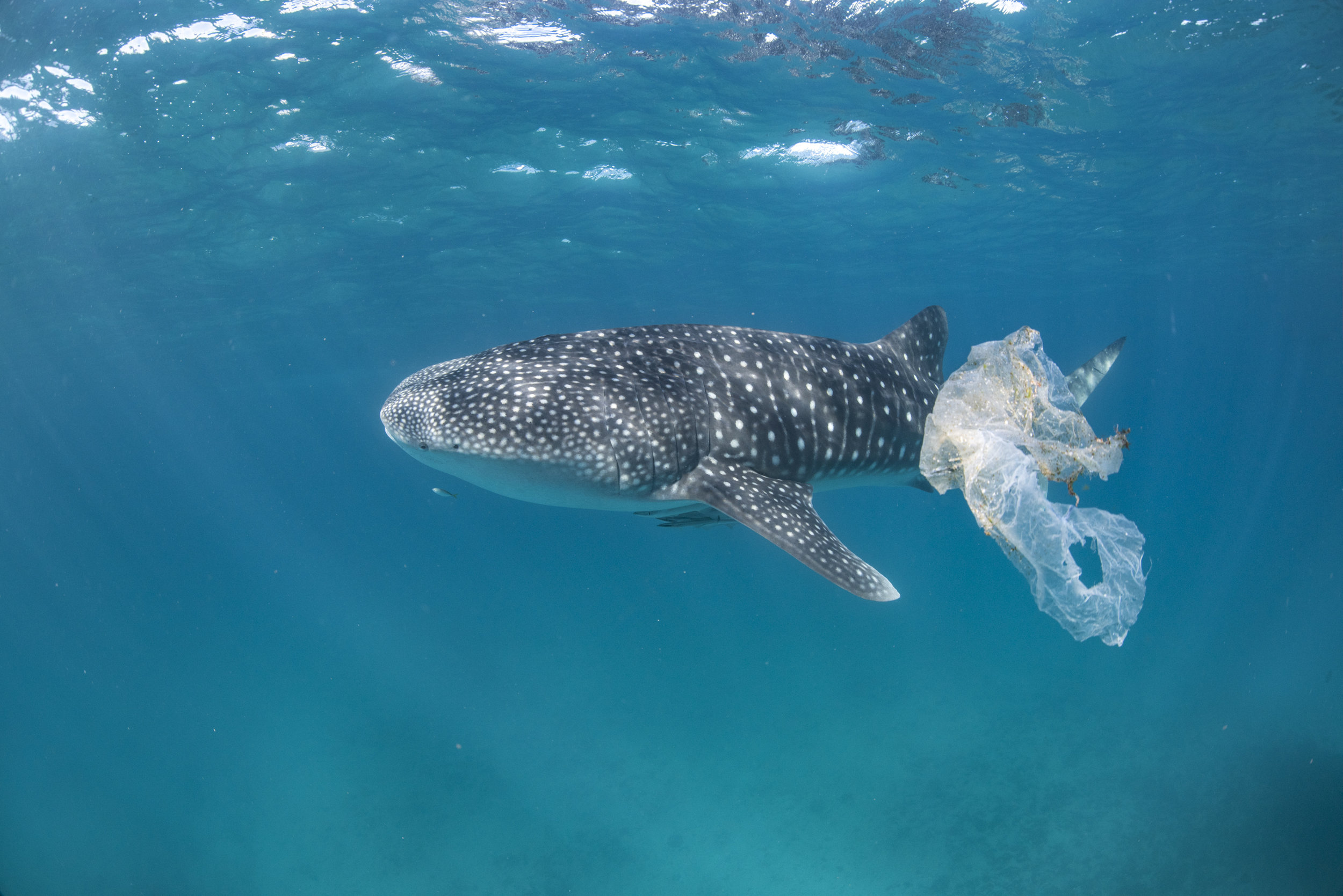A Look Back, and a Step Forward
Rebecca Daniel
To round off our Plastic Not Fantastic campaign this month, I will leave you with this positive message on what’s being done to tackle plastic pollution around the world. I hope you feel inspired to make a few changes in your own lives to help the oceans...
Plastic pollution is now known to contribute significantly to climate change because its production is so energy intensive (62-108 MJ of energy per kg), but also because when plastics photodegrade they release methane and ethylene which are potent greenhouse gases. It’s even been estimated that plastic accounts for 3.8% of global greenhouse emissions, which is almost double the emissions from aviation. By 2050 this figure could climb to 17% with current increases in production.
Plastic pollution is estimated to cause more than $13 billion in economic damage to marine ecosystems each year, and now plastic has been shown to be capable of crossing the blood-brain barrier. Plastic particles have caused behavioural disorders in fish and oxidative stress in human cell lines. Plastic could be linked to inflammatory conditions, depression, and Alzheimers. This is concerning considering the amount of plastic that we consume.
Plastic pollution is everywhere! Photo: Ocean Collective Media
So it’s a good thing people, businesses, organisations and governments are finally waking up and doing something about it.
Luckily, the world’s nations have agreed to restrict shipments of plastic waste abroad, and consent will need to be granted by the receiving country. And no longer will plastic be dumped, as each country will also be responsible for monitoring exactly where the plastic goes after it leaves their borders.
Numerous small scale initiatives are popping up, such as the use of ocean plastic to make roads in India, creating jobs, cutting costs and saving the oceans. Big restaurant and cafe chains are cutting out single-use plastic. Companies are innovating and creating alternatives to plastic from bamboo, seaweed, wheat, and other natural materials. Return schemes in shops, supermarkets and even at home are encouraging a more circular economy and turning waste into wealth.
People around the world are finding imaginative solutions to plastic reduction and clean ups. You can go trash kayaking in Denmark or paying for school with plastic in India.
Technology is advancing to help the cause, from drones to apps and clean up technology. You can even see where plastic might end up, depending on where it enters the oceans using an interactive map. And new plastic free trademark could make choosing the right products a lot easier!
People, organisations, and businesses are tackling plastic pollution at the source, and cleaning it up from the oceans. Photo: The Seabin Project
The effects of plastic on humans is being investigated and a bacteria has been developed that can break down plastic into CO2 and water, which might just be the solution to all the plastic waste accumulating in the environment that can’t be recycled. In the future, your clothes might even be made of mushroom, coconut, or pineapple instead of plastic!
So it’s not all doom and gloom, and whilst we need to continue to spread awareness and take action, there is light at the end of the tunnel. We can clean up this mess! If an entire Japanese village can go waste free.. why not every home, village, town, and city?
We hope that this month has given you time to pause, and think about the impact of your daily actions on our oceans. Reducing plastic in your life is a journey, and will have its ups and downs. Yes, you will forget your water bottle or your coffee cup, and that’s ok. No one is perfect. Plastic-free is an ideal to be strived for, but there will be a much greater impact from many people doing plastic-free imperfectly, than a few doing it perfectly. Any step you take, no matter how small, will have a positive impact.
So take the pledge and start reducing your plastic today!
And why not make your business plastic free too with help from the Marine Conservation Society.
Plastic pollution is one problem that is fairly easy to address, and acts as the gateway to addressing other environmental issues. So as you begin to change your habits, lifestyle and consumption to reduce your use of plastic, we hope you are inspired to take action on other fronts.
Look out for our info-posters and guides being released on our website and Facebook Group ‘Plastic Free Oceans’ that will help you on your plastic free journey, or check out our complete A-Z here
Together we can keep our oceans plastic free! Photo: Sam Harrison



